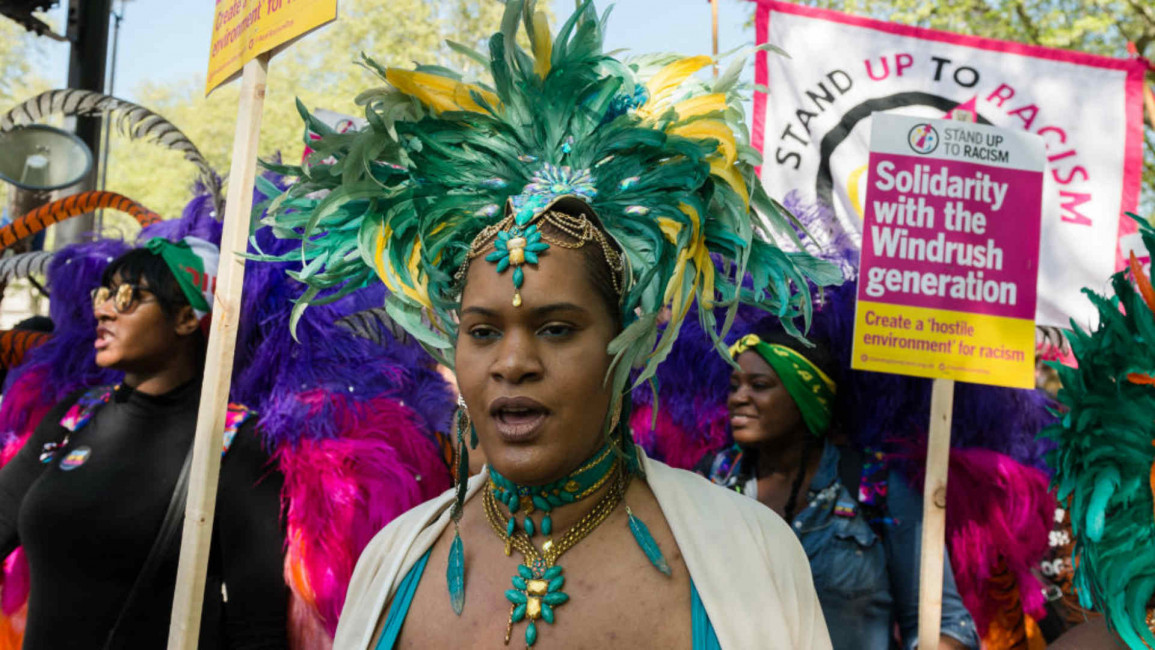
Dear white people: Black history is more than just a month
Part of the hesitation to welcome the events being held by our government has much to do with their continued mistreatment of black people, which seems only to grow when we consider the deplorable attempts by some local councils to depoliticise the entire affair.
The state's choice to co-opt antiracist politics has meant an increased tendency by institutions to whitewash the very reason we hold an annual Black History Month (BHM).
Instead of refreshing people's understanding of the British Empire's disgraceful acts of violence against African and Caribbean people for hundreds of years, and their historic resistance; so that we may recognise how racism continues to this day and why it must be fought, tokenistic "celebrations" are offered instead.
For example, the conservative-led borough of Wandsworth came under attack for changing BHM to "Diversity Month". In addition, it outsourced the organisation of the month's events to a company named Better, which is even offering events representing European communities in the area.
Back in 2007, the London borough of Hillingdon actually cancelled all Black History Month celebrations, and twice blocked attempts to reinstate it, led by Labour councillor June Nelson. This year, they have organised a series of events called Culture Bite, which - believe it or not - include wine tasting and country dancing.
Read more: Silencing Arab and Muslim women
If this is the scene in London, one of the most diverse capital cities in the world, one can only imagine what is happening in other areas of the country, schools, universities and workplaces.
Attempts at shutting down BHM events have often rested on the argument that the make up of a community - ie. the lack of black people in the area - means that there is little demand for it.
Twitter Post
|
Not only does this statement rely on tenuous or even incorrect data, as highlighted by a recent Guardian article using census data from Wandsworth and Hillingdon, but it also rests on faulty logic.
Indeed, black history is not only relevant to black people themselves, but represents a critical and often silenced aspect of the collective struggles and political processes that make up our societies.
In fact, neighbourhoods lacking people from different ethnic groups, are probably those most in need of an education on such subjects. The history of black people, their experiences, contributions and suffering are relevant to everyone in our society. The exploitation and plunder of people of African and Caribbean descent have been integral to the development of this country's wealth, since the time of slavery and colonisation.
Black communities have been exploited for centuries, and it is clear the the continuation of this today - through socio-economic inequality, racism, and state violence - is a motivating factor in the whitewashing and erasure at the hands of councils and the diversity industry.
In Lambeth, the first day of BHM was marked by the news of an open letter by 20 black council workers describing their "despair, humiliation, disappointments, rejection and loss of staff unity that are direct consequences of racism at work".
Considering that 59 percent of the council's staff are people of colour and that it is situated in one of the most diverse areas of London where staff are supporting locals with housing, finance and social services, it is deeply disconcerting to know that the levels of institutional racism are such that black staff were left with no other options than to issue a public statement.
None of the internal processes provided by the institution had dealt adequately with growing concerns of oppression and segregation.
 |
Black History Month sadly remains a bittersweet experience for those communities most impacted by oppression in Britain today |  |
Even when 'official' tributes to the Month do take place, they are difficult to swallow, especially in today's climate. This has been a year of rising hatred, violence and institutional racism stemming directly from the policies and practices of those leading the country.
In the year that we marked the 25th anniversary of the racist murder of Stephen Lawrence, which many describe as a watershed moment in race relations in the UK, we also witnessed the murder of 17-year-old Abdi Ali, heavy with many reminders of the treatment of the Lawrence Case.
Twitter Post
|
In addition, Tory Britain's institutional racism was further exposed through the scandalous Windrush scandal. People across the country showed their outrage over the government's decision to deport countless men and women from the Windrush generation - Caribbean migrants who were brought over by the British government following the second world war, to help rebuild the country and set up the welfare system.
The media covered just the tip of the iceberg of the painful stories belonging to black families impacted by the 'hostile environment', but did shed some light on the way these policies served as a way to deepen inequality, discipline black and migrant communities through fear, and resurrect the memory of empire.
The empowering essence of black history is resistance.
From remembering groups such as the British Black Panthers and activists such as Claudia Jones, to academics such as Stuart Hall or artists such as Linton Kwesi Johnson, it is impossible to overlook the contributions to the struggle for justice, equality and liberation that such black figures have made in the UK.
BHM is a time of recognition of the past, reflection on the present, and a rejuvenation of resistance to ensure the future holds months of actual celebrations that racism and injustice were defeated once and for all.
This won't come from above, from politicians or private companies. It will come, as it always did, from below, from communities, united in struggle for a better tomorrow.
Malia Bouattia is an activist, a former president of the National Union of Students, and co-founder of the Students not Suspects/Educators not Informants Network.
Follow her on Twitter: @MaliaBouattia
Opinions expressed in this article remain those of the author and do not necessarily represent those of The New Arab, its editorial board or staff.




